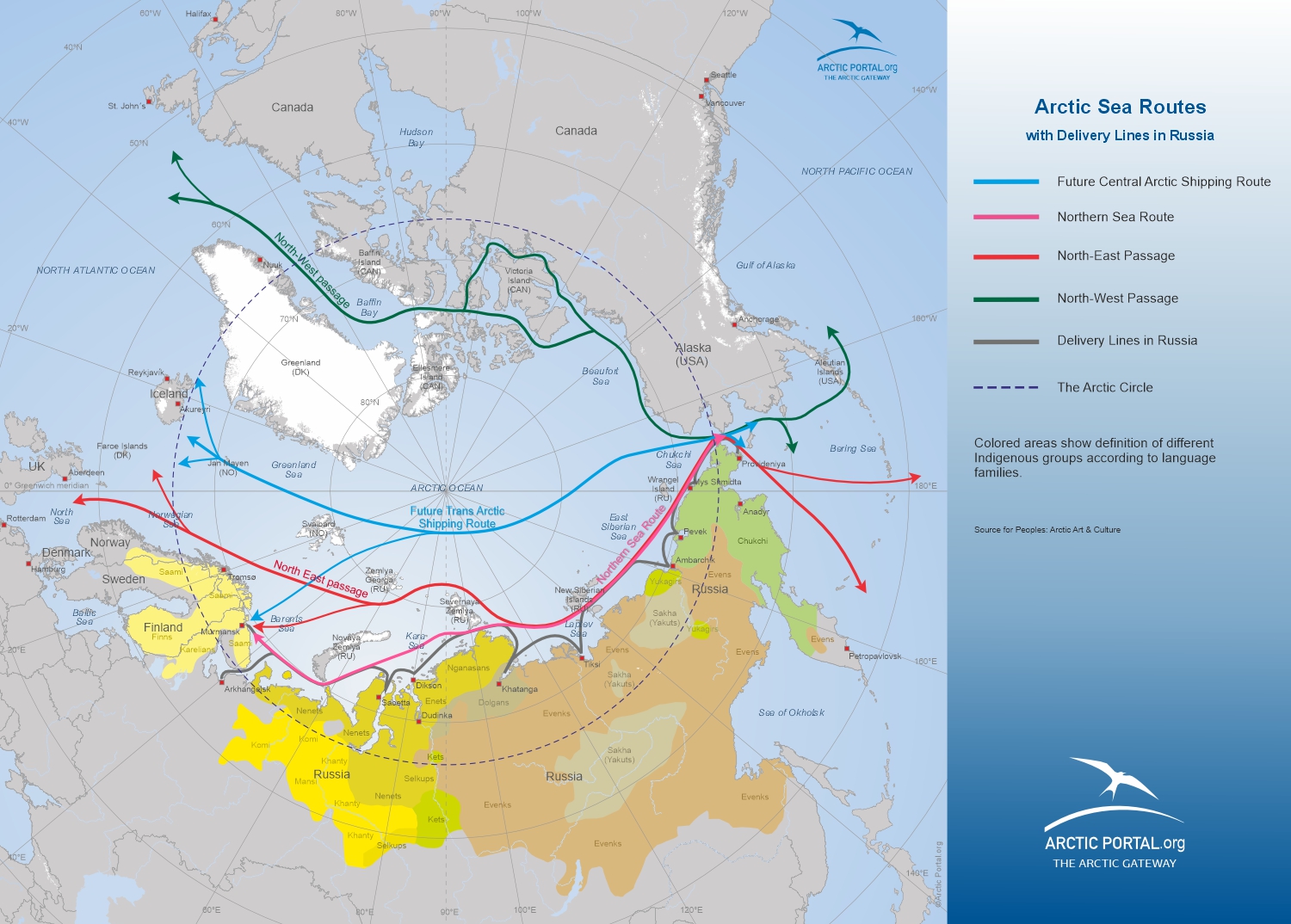The development of the Northern Sea Route – the perspective of indigenous people.
An article by: Sofia Urun, director of the Institute of the people of the North, Herzen State Pedagogical University of Russia.
Indigenous people living in the Arctic zone of the Russian Federation are estimated to be about 82,000. Their existence is depending on well organized and uninterrupted supply of vital products not least for food health security and energy. Transport infrastructure, including roads, railways, or seaways, is very limited, periotic, or even not existing in the remote and climatically extreme regions of the Arctic. Often the only alternative is air transport which increases the price of goods two times or more. These conditions affect the level of well-being of people living in Arctic settlements.
Despite the complexity and extreme conditions, the Arctic region is developing rapidly in the fields of industry, tourism, and the production of eco-friendly food. The number of people living in the region, permanently or periodically, is growing and this process is leading to increased infrastructure and social development.
The development of the Northern Sea Route ( NSR ) is helping improve many of the transportation and logistical issues and tasks of the region, supporting positive development and social well-being. For indigenous people, such as the Sami, Nenets, Khanty, Evenks, Evens, Dolgans, Yukaghirs, Chukchi, and Eskimos, the Northern Sea Route is not only a link with the "mainland" (as locals refer to the regions outside the Arctic region), but more importantly an opportunity to improve the quality of life. The presence and further development of the transport route will improve the transportation of vital products and attract activity and people to the Arctic regions, both those who plan labor migration as well as those who associate their future with this resource-rich and promising region.
The Arctic is becoming one of the most important transit hubs of the planet, attracting the increased attention of many countries, both Arctic and non-Arctic. Logistics and transport (The Northern Sea Route) are of great interest for these states.
The Northern Sea Route stimulates Arctic economic growth by reducing transit time between East and West by up to 40%, it also reduces fuel consumption and carbon emissions. In recent years, the Arctic shipping lines have already experienced a significant increase in vessel traffic. In particular, the total volume of cargo transported along the Northern Sea Route exceeded 34 million tons in 2022. This trend will continue as state-owned companies continue to sponsor Arctic shipping and icebreaker construction.
The Arctic Ocean and the airspace above it are a unique communication field capable of connecting practically all the most developed and dynamic regions of our planet, which is fundamentally important for today’s rapidly developing countries with global interests. The Northern Sea Route is a transport route, which has not only a unique regional but also global significance as it is the shortest route to connect China with the developed countries of Europe and North America. According to the forecasts, by 2030, the Arctic may be practically ice-free and as a result, year-round use of the Arctic transport routes will become possible. The cost-effectiveness of this route, its shorter length compared to traditional southern routes: the distance traveled by ships from the port of Murmansk to the port of Yokohama (Japan) through the Suez Canal is 12,840 nautical miles, and the Northern Sea Route is only 5,770 nautical miles, almost two times less.
The Northern Sea Route is also better because congestion in the Suez and Panama canals directly threatens the security of intercontinental shipping and increases the cost of international trade. The problem of piracy in the Persian Gulf, the Strait of Hormuz, the South China Sea, and the Strait of Malacca also persists.
The Russian Federation welcomes the cooperation of the Arctic countries. Moscow believes that cooperation in the field of investment and technology, including oil and gas production on the Arctic shelf and the use of the NSR, is constantly expanding within the framework of interaction and Arctic partnership.
According to the laws of the Russian Federation, the NSR is a historically established national unified transport communication of the Russian Federation. Merchant navigation in the waters of the Northern Sea Route is regulated by international law, generally accepted principles, norms of legislation, and international treaties of the Russian Federation.
Legal consolidation of the NSR will lead to active economic growth of Arctic countries and long-term international partnerships.
Related news:
Arctic Multilingual Portal now open!
Lack of infrastructure slowing down the development of the Northern Sea Route
Sustainable Development of Reindeer Husbandry in the Context of Global Changes in the Arctic
International Traditional Reindeer Herding Championship 2023
Yamal Arctic Oil and Gas 2022 - get a free report
The tags below provide an opportunity to view previously posted related news within the selected category

